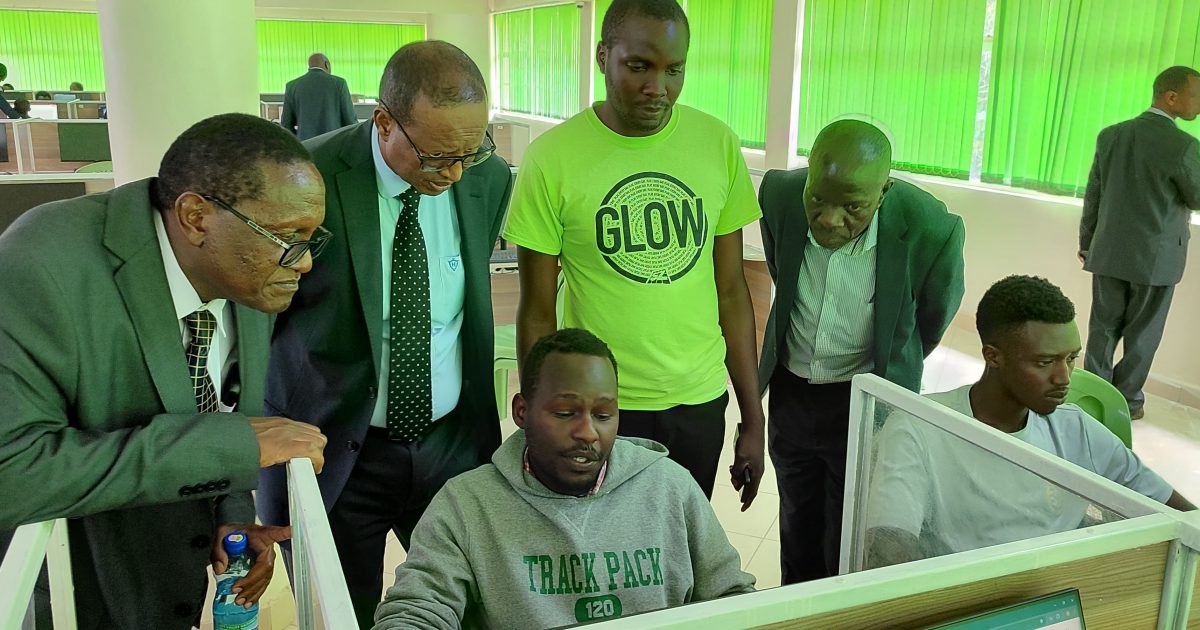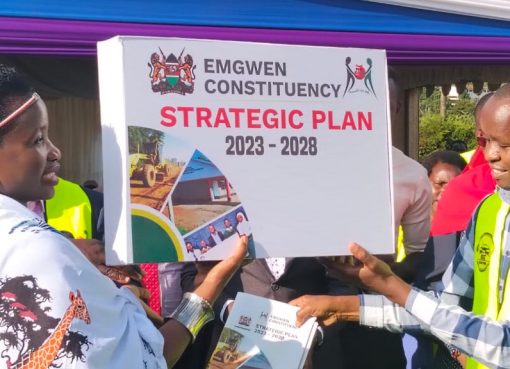The National Government has committed to fast-track infrastructural projects in the Rift Valley region.
According to Rift Valley Regional Commissioner Dr. Abdi Hassan, the government desires to complete mega projects as quickly as possible to realise their full potential in supporting the economy.
The Regional Commissioner who spoke at Rift Valley National Polytechnic after the National Government Development-Regional Development Implementation, Coordination, and Management Committee (NGD-RICMC) reviewed the progress of various taxpayer-funded projects in the fourteen counties and indicated that the infrastructure works traversed an area where agriculture, manufacturing, tourism, financial services, transport, fishing, and tourism were the main economic activities.
The Regional Committee is undertaking field visits across all 14 counties in the Rift Valley region to verify the ground status of priority BETA projects and programmes, sensitise the public on their progress, address key implementation challenges, and fasttrack their completion to benefit the local communities.
Dr. Hassan expressed optimism that the projects would help create new jobs, open up opportunities for traders, and boost the region’s economy.
“As the NGD-RICMC, we are determined to speed up the delivery of major infrastructure projects so that they support the government’s ambitions for economic growth and improving connectivity and transport links,” he said.
He urged contractors to complete their work within the set timeframes to avoid situations where the government was sometimes forced to spend more money than was allocated to complete projects because contractors never finished their work as stipulated in their contracts.
He said the government has been firm, consistently calling on contractors to undertake quality construction.
“Any contractor who does not perform to the expectations of the government terms laid out in the contract will be letting down Kenyans. Doing second-rate work also amounts to letting down the government. We will ensure that infrastructural projects funded by the taxpayer are in top condition to facilitate trade and agriculture and improve the lives of Kenyans in line with the Vision 2030 initiative,” the administrator assured.
During a tour of the Rift Valley National Polytechnic (RVNP) Jitume Hub, Dr. Hassan said the government was keen on opening up more job opportunities for the youth by training them on digital skills, information, communication, and the digital economy.
The administrator challenged youths to embrace digital skills being offered at the RVNP among other similar centres in the region, saying the government was doing this through Ajira and Jitume digital programmes.
According to the official, the programmes will allow youths to acquire the right skills by using digital space.
“E-commerce skills strive to assist the youth, especially students, in buying and selling services that help them make good money,” said Dr. Hassan.
The Kenya Kwanza government has announced plans to establish about 1,450 digital labs across the country to drive the country into a digital hub.
The national government also plans to expand the digital superhighway aimed at rolling out more than 100,000 kilometres of fibre optic cables, installing Wi-Fi hotspots in 25,000 identified areas, and building 1,450 digital innovation labs across the country.
This infrastructure will form the backbone of the online creative economy, equipping many Kenyan youths with skills to get jobs in the online space.
The Regional Commissioner indicated that the country stands to be an economic powerhouse with the intensive training and free access to the internet the government is giving.
He indicated that the Jitume programme was aimed at providing youths with various skills and online jobs that offer weekly earnings.
According to the national government, more than 300,000 youths have benefitted from the Ajira Digital and Jitume skills organised through the Ministry of ICT and the Ministry of Labour and Social Protection.
“The impact of the Jitume programme has been significant. Over 800 students and alumni from the Rift Valley Institute of Science and Technology (RVNP) have already benefitted from the programme since its inception in September last year,” Dr. Hassan added.
He emphasized the government’s commitment to the digital superhighway and creative economy, noting that these initiatives are part of the BETA plan.
He expressed satisfaction that the project was doing well for the applicants who have succeeded in getting the online jobs, with some making between Sh30,000 to Sh100,000 per month.
One of the digital programmes that the government launched recently was the Finya Computer Free Online Training Programme, which targeted youth aged 18-35.
Regional Head of Government Delivery Unit, Mr. Sitati Olando, also emphasized the importance of online job opportunities, urging youths to take them seriously and apply whenever available.
Sitati assured that they were ensuring the public-funded projects met the set quality parameters and should be fit for the purpose they are meant for.
“It is our resolve to oversee successful exchequer-funded projects that are delivered on time, within budget, and meet the scope they are meant to cover,” he added.
Sitati said the state has tightened its supervisory role for exchequer-funded projects to ensure proper utilisation of public funds and enhance accountability.
Nakuru County Commissioner Loyford Kibaara vowed to protect learning institutions from landgrabbers.
He said public learning institutions still face the risk of being dispossessed of land through grabbing, encroachment, and never-ending court battles.
Kibaara warned land grabbers targeting public land that they would not get away with it.
By Anne Mwale




